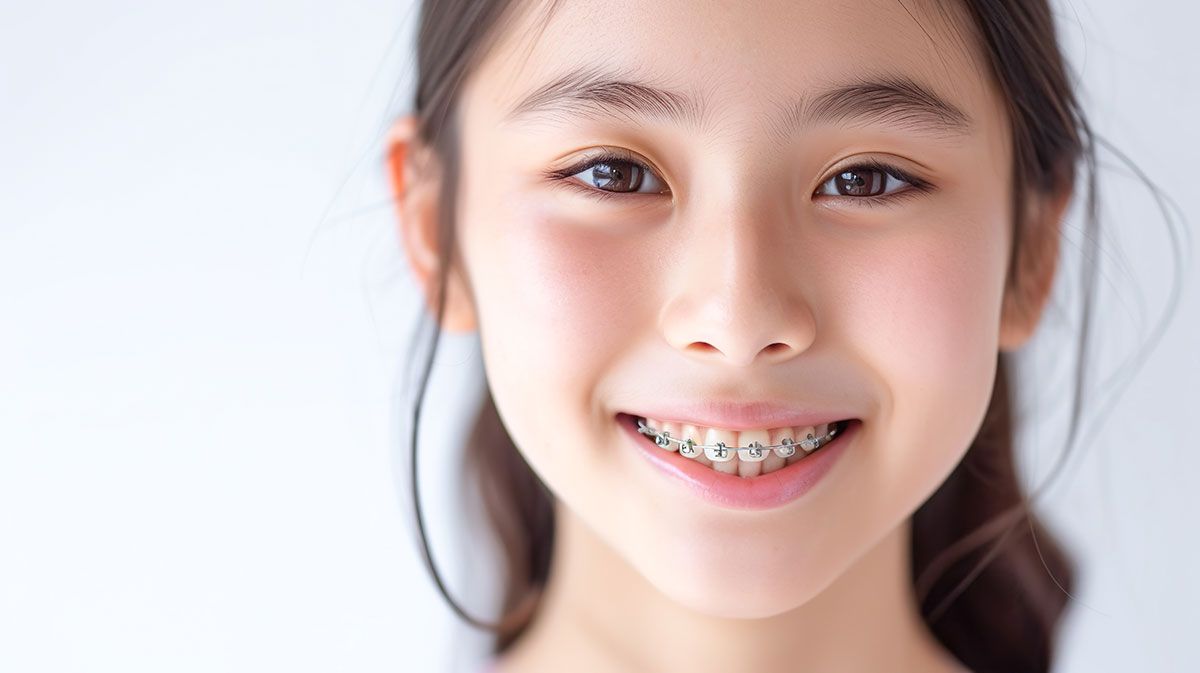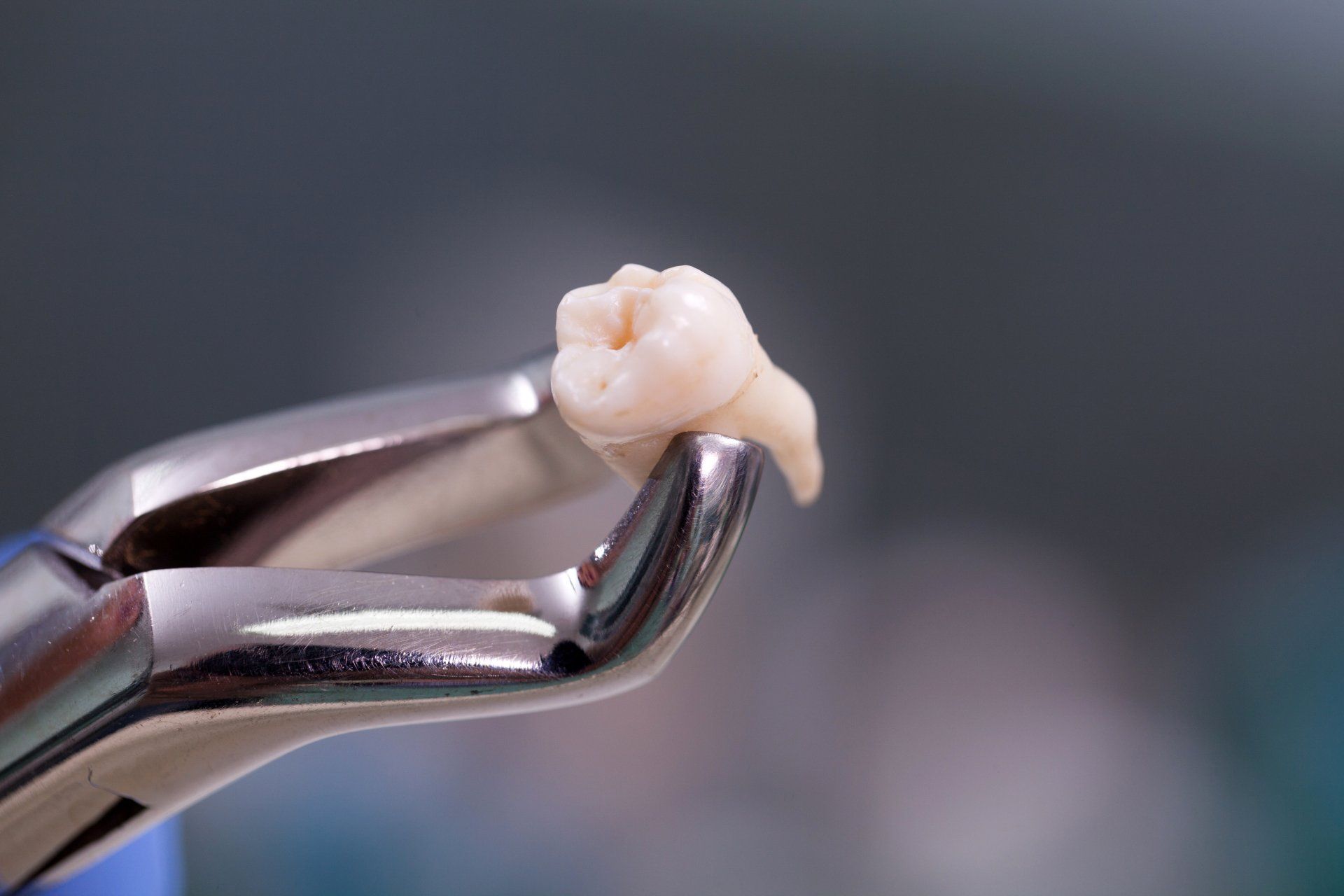Do you agree that a major deterrent to getting orthodontic treatment is dreading the number of teeth that your dentist will advise you to have pulled out? The thought of removing permanent teeth from your child or even yourself can be frightening for almost anyone. If that is or has been one of your concerns then read on …
The main reasons why most orthodontists recommend the extraction of teeth:
1) Severe Crowding - If there are too many teeth on the dental arch, crowding occurs. The lack of space is the primary reason teeth may be misaligned.
2) Help Reposition The Jaw - The way in which your jaw is positioned can determine if you have an under bite or overbite. If the bite is drastically off, removing teeth maybe necessary.
3) Protruded teeth - If your teeth are overcrowded, it can lead to your teeth protruding. Protruded teeth pose a significantly greater chance of dental injuries while doing routine activities. It is common to remove teeth and use braces to allow more space for your teeth to erupt. This is typically effective in children younger under 16, before their jawbone hardens too much and can’t be manipulated.
These can occur for a wide array of reasons. A mix of genes in your body may result in a small mouth but large teeth. You can’t fit all your teeth into your jaw unless you remove some teeth or make your jaws bigger. Typically, orthodontists don’t recommend extractions unless it is the best possible choice as there are a few other techniques that can help make room in the mouth without needing to remove teeth.
Pulling teeth is only done if absolutely necessary: your orthodontist will consider all options to achieve a health smile before recommending an extraction.
Getting teeth extracted can make people nervous. With careful supervision from an experienced orthodontist, and an expert extraction procedure from a qualified dentist or oral surgeon, your extraction experience will be comfortable and effective, and allow you to achieve the healthy smile you deserve.
About Tooth Extractions
Tooth extraction is when a tooth - or several teeth - are pulled out of the mouth and removed. In certain orthodontic cases, dental extractions are sometimes necessary to alleviate crowded teeth and to establish a stable bite.
Your orthodontist will refer you for extraction of 1 to 4 teeth, depending on your specific diagnosis. (Wisdom teeth are considered separately from orthodontic extraction cases, since there are other reasons for removing those molars). Removing an odd number of teeth is common when treating asymmetry in the bite pattern or traumatic biting.
When deciding which teeth to remove, your orthodontist will consider how best to fit the other teeth into their healthy, correct positions, with the least possible disruption to the mouth or the patient’s facial shape and tongue positions. 3D-modelling scans can help orthodontists determine which extractions will be the most useful.
Some of the considerations while deciding are as follows:
- Teeth cannot be straightened with braces without first undergoing extraction(s)
- Tooth is too large to fit in mouth
- Tooth grows in the wrong direction
- Tooth is sore or painful
- Tooth is discolored
- Tooth is sensitive to the touch
- Tooth appears chipped, cracked, or otherwise damaged
This list is just to help you understand some of the signs of possible extraction cases: it does not mean your teeth will have to extracted only. If your orthodontist suggests an extraction, you can be sure it’s an informed opinion to achieve the best results, for a smile you’ll love and a healthy bite built to last.
Alternatives to Extraction
For certain patients, it may be possible to widen the dental palate in order to make room for the teeth, rather than extracting them. This is more commonly effective in children, whose bones are still developing and can thus adapt quickly to the expansion of the palate. For adults, whose bones have stopped growing, this may be less effective.
Where palate expansion is not possible, some surgical procedures can add bone to the palate, allowing for more expansion in adult palates. Alternatively, it is sometimes possible to shift the teeth further back into the mouth using orthodontic care (called distalization), making more room for crowded teeth rather than extracting them. While these are newer treatments, these procedures have been found to be effective.
Frequently Asked Questions about Teeth Extractions
- Do You Have to Get Teeth Extracted Before Braces?
Not all cases require teeth extractions before beginning braces treatment. In fact, only a small percentage or orthodontic cases require extractions. Your orthodontist will decide if extractions are necessary to achieve a healthy bite and a beautiful smile.
- Do You Have to Get Teeth Extracted Before Invisalign?
If you are getting Invisalign, your orthodontist will determine what procedures will be necessary to help your teeth achieve their best results. Tooth extraction is a last-choice option, but if your orthodontist recommends an extraction, it will certainly help you achieve a healthy, happy smile built to last.
- How Do I Know If I Need Teeth Extracted?
Your orthodontist will make a professional decision about whether teeth need to be extracted. Some signs you might need a tooth extracted include: teeth growing in the wrong direction; teeth too large to fit in the proper positions; jaw too small to fit all the teeth; teeth discolored or showing other signs of decay; or sensitive or painful teeth. Very pronounced issues with your bite may also require tooth extraction to properly correct, especially if surgery is not an option.
- Why Do Orthodontists Pull Teeth?
Orthodontists do not pull teeth. They decide if extraction is necessary to achieve a healthy bite and beautiful smile with straight teeth, and then refer you to a general dentist or oral surgeon to complete the extraction. If there are too many teeth to fit in the jaw properly, or certain teeth cannot be properly spaces into the row of teeth, it is sometimes more effective to remove the tooth than try to find space for it in the teeth.
- How Common is Tooth Extraction for Braces?
Tooth extraction is not very common for orthodontic care. It is more common for adults, whose teeth and bones have stopped growing and thus may be more difficult to move, creating severe crowding.
- Is it Okay to Extract Teeth for Braces?
Yes, it is very safe to extract teeth for braces. Orthodontists will authorize removal of only those teeth that absolutely necessary for achieving a healthy, beautiful smile and a correct bite. Only a minor percentage of braces cases require tooth extraction.
- Does it Hurt to Have Teeth Extracted?
Using local anesthesia, you should not feel any pain during the extraction. When the anesthesia wears off, you may feel some pain or discomfort, but this can be easily treated with any over-the-counter pain medication. Follow the directions of your oral surgeon to ensure proper healing. Most simple extraction cases heal very fast, so the pain should go away in a day or two.
- How Many Teeth Get Removed for Braces?
If tooth extraction is necessary for your braces or Invisalign treatment, your orthodontist will carefully decide which and how many teeth need to be pulled. They may remove between 1 and 4 teeth. Removing an odd number of teeth is common for asymmetry cases, where the teeth are not divided evenly in your face.
- Are There Alternatives to Removing Teeth for Braces?
There are several alternative methods to tooth extraction. One involves surgically inserting more bone into the palate to help it expand and make room for all the teeth. Another involves aligning teeth further back into the mouth, so the molars extend further back and make room for all the teeth. If you get an early start as a child, chances are your specialist orthodontist can use the growth of the bones to achieve optimal results without the need for extractions and sometimes even braces altogether!
It’s essential for the orthodontist and patient (or parent) to have a detailed conversation about the treatment plan before orthodontic treatment is started. That way, options can be explored, questions answered and expectations kept realistic. Anyone who undergoes orthodontic treatment deserves a treatment plan as unique as they are—along with an understanding of why it might make the most sense to remove teeth or not after all!
About Our Clinic:
At Dr. Catherine Lee Orthodontics, we have a dedicated team of doctors and staff whose skills and experiences help our patients enjoy the process of creating healthier, beautiful smiles. We have a strong focus on growing children, and especially welcome those who need orthodontics and dentistry for kids. For a consultation, contact us at enquiries@DrCatherineLeeOrthodontics.com.






